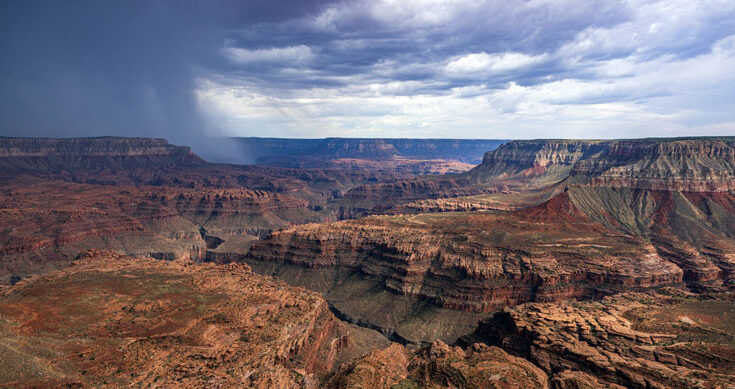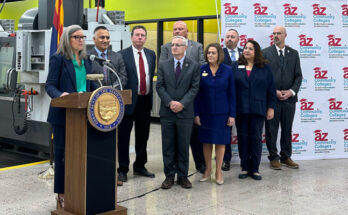Photo By Natives Outdoors and Trout Unlimited: The Grand Canyon has a new monument.
Contributed Article/Courtesy Center for Biological Diversity/Arizona Wildlife Foundation/Trout Unlimited
GRAND CANYON NATIONAL PARK, Ariz.— President Biden used the Antiquities Act today to designate the Baaj Nwaavjo I’tah Kukveni – Ancestral Footprints of the Grand Canyon National Monument in northern Arizona, permanently protecting nearly 1 million acres of public land surrounding the iconic national park. Proposed to the Biden administration by the Grand Canyon Tribal Coalition, Baaj Nwaavjo means “where tribes roam” for the Havasupai Tribe, and I’tah Kukveni means “our ancestral footprints” in Hopi.
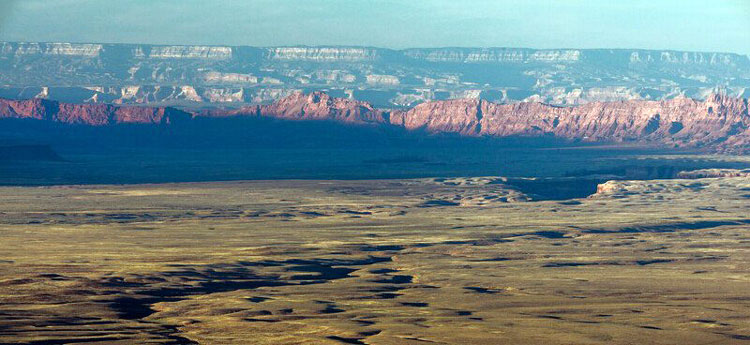
“With this historic designation, President Biden is permanently safeguarding the magnificent rimlands that flank the Grand Canyon, their rich biodiversity, and life-giving springs and aquifers,” said Taylor McKinnon, Southwest director at the Center for Biological Diversity. “On behalf of our members and supporters, the Center for Biological Diversity extends our deepest gratitude to Havasupai, Hopi, Navajo, and other Tribal leaders who have sought land protections for generations, and to the president for heeding their wisdom and leadership.”
The country’s newest monument enjoys widespread public support in Arizona, in addition to backing from regional businesses, governments, and elected officials. It harbors sacred sites, like Red Butte, and its diverse ecology includes federally protected species like California condors and many plants found nowhere else on Earth. The monument encompasses ancestral homelands of several regional Tribes and is the culmination of efforts since 2008 to permanently protect Grand Canyon’s adjoining landscapes from new uranium mining.
The Arizona Wildlife Federation applauds the Biden Administration for listening to and working with the Arizona Game and Fish Department, conservation organizations, the Grand Canyon Tribal Coalition, Arizona businesses, community members, and Arizona residents to enact these long-overdue protections – and to uphold its commitments to free, prior, and informed consent and other legal obligation to the Tribes. The Tribal Coalition, which has shown tremendous knowledge and leadership in advocating for these reforms, includes representatives of the Havasupai Tribe, Hopi Tribe, Hualapai Tribe, Kaibab Band of Paiute Indians, Las Vegas Paiute Tribe, Moapa Band of Paiutes, Paiute Indian Tribe of Utah, Navajo Nation, San Juan Southern Paiute Tribe, Yavapai-Apache Nation, Pueblo of Zuni, and the Colorado River Indian Tribes.
“The Baaj Nwaavjo I’tah Kukveni — Ancestral Footprints of the Grand Canyon National Monument protects water that is vital to the existence of wildlife, Indigenous communities, and 40 million other users downstream. This new designation also safeguards outdoor recreation activities so that future generations can continue to hunt, fish, hike, and raft on the lands and waters that surround this natural wonder,” said Scott Garlid, Executive Director of the Arizona Wildlife Federation, “We are grateful to the Biden Administration and Arizona’s Congressional delegation for creating a reasonable designation that assures the Grand Canyon watershed will be both protected and actively enjoyed.”
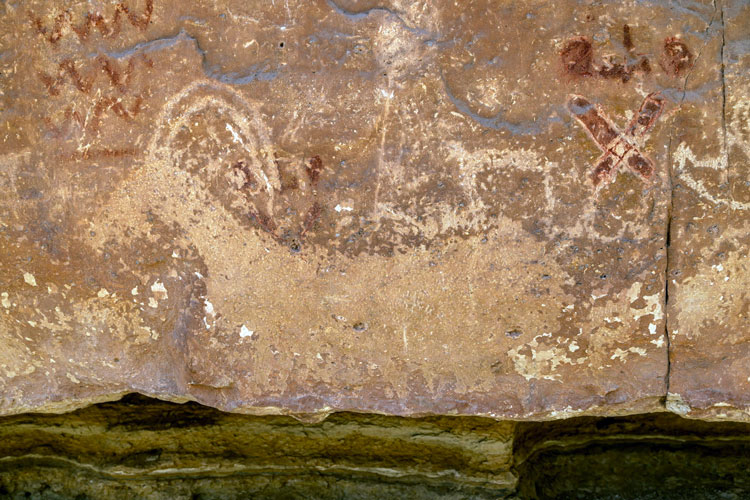
Last month, Trout Unlimited partnered with Natives Outdoors to document the proposed boundaries and capture stories of why this monument is so important to the local indigenous communities.
Trout Unlimited will be rolling out these stories shortly, but to commemorate the Biden Administration’s historic action, here’s a sampling of images from the region, including some of our newest monument.
“Generations of Indigenous Peoples and other residents of Arizona carry with them the mistakes of dangerous uranium mining. The creation of the Baaj Nwaavjo I’tah Kukveni — Ancestral Footprints of the Grand Canyon National Monument cannot make them whole, but it will help spare future generations of people and wildlife from irreparable harm,” said Collin O’Mara, president and CEO of the National Wildlife Federation. “We will continue to work with the Grand Canyon Tribal Coalition and Biden Administration to steward this landscape and ensure it is managed for the benefit of people and wildlife alike.”
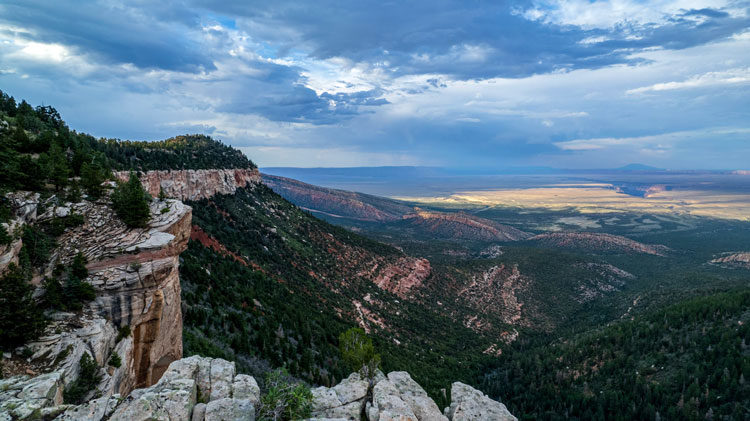
The monument boundary is similar to the 2012 Northern Arizona withdrawal adopted by President Obama that banned new uranium mines around Grand Canyon for 20 years. Federal legislation, introduced by never passed, would have made those protections permanent.
Uranium mining around the Grand Canyon has damaged sacred sites and depleted and polluted aquifers that feed the iconic canyon’s springs and streams. Today’s declaration permanently bans new mines. Uranium mining on claims predating the 2012 withdrawal, like the Pinyon Plains mine near Grand Canyon’s South Rim, are exempt and still threaten the region’s aquifers, springs, and cultural heritage.
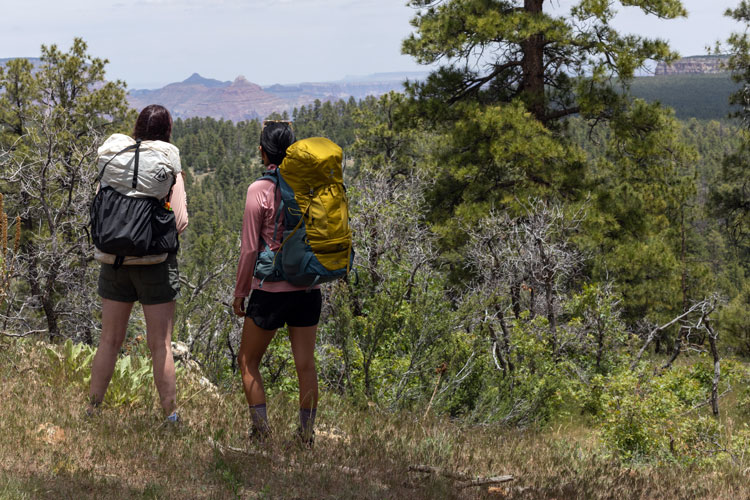
“The Baaj Nwaavjo I’tah Kukveni — Ancestral Footprints of the Grand Canyon National Monument is a sportsman’s paradise that supports a world-renowned mule deer herd,” said Michael Cravens, Advocacy and Conservation Director for the Arizona Wildlife Federation, “Therefore, protecting this region from the detrimental effects of uranium mining has been a long-term priority of the sporting community. Declaring this iconic landscape a National Monument, along with preserving access for sportsmen and women and keeping authority over wildlife management in the capable hands of our Arizona Game and Fish Department, not only successfully protects this region from the toxic effects of uranium mining but also preserves the imperative connection that people have to the land.”
For more than a decade, Trout Unlimited has been working to protect the greater Grand Canyon region from the toxic history of uranium mining in the region. Today, President Biden announced the creation of Baaj Nwaavjo I’tah Kukveni – Ancestral Footprints of the Grand Canyon National Monument, which has long been a priority for sportsmen and sportswomen in the state.
“Baaj Nwaavjo I’tah Kukveni – Ancestral Footprints of the Grand Canyon National Monument is broadly supported by Arizonans across party lines and has long been a priority for sportsmen and sportswomen in the state,” said Nathan Rees, Arizona Field Coordinator for Trout Unlimited. “Given the toxic history of uranium mining in this region, we commend the leadership of this Administration for enacting the wishes of millions of people hoping to preserve the beauty of this idyllic landscape. As sportsmen and sportswomen, we value a multi-use approach on our public lands and insist on practical and science-based management of our natural resources. A national monument does just that.”



